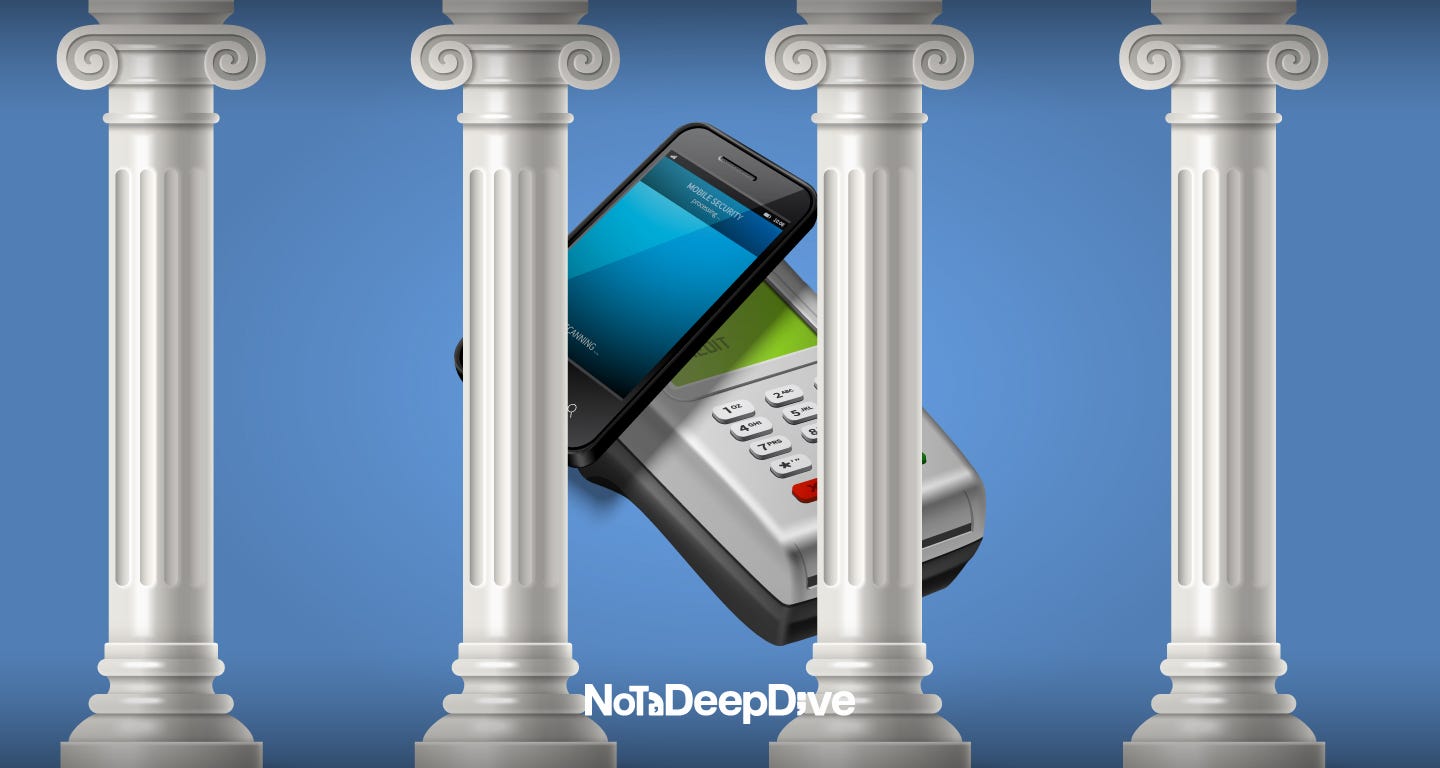Policy Theatre
The $500 million circular
Buy Now Pay Later giant Klarna made a splash this week with its Initial Public Offering (IPO) priced at $40 a pop. As far as debuts go, it was super solid. Your move, butterfly company.
If this email was shared with you, subscribe here for free:
TOGETHER WITH CREDIT DIRECT
Big dreams often fade without a framework. Target Yield makes sure yours do not.
With set timelines, easy top-ups, and returns that reward your patience, you give your goals the structure they need to become reality.
From hero to villain
Public policy debate in Nigeria often comes down to two simple tests. First, does it directly drain your wallet? And second, do you already dislike the group it’s targeting? How we answer these questions determines whether a proposal explodes into fiery public outrage or is welcomed with collective indifference.
Case in point: the recent conversation around a proposed 5% fuel surcharge for 2026. The idea, which has been floating around since 2007, was met with a virtual firestorm this week because absolutely no one wants to pay more for petrol. The backlash grew so intense that a conspiracy theory even took root, suggesting the government or the World Bank was secretly paying influencers to drive conversations normalising higher fuel prices in other African countries.
Then you have the other extreme. When the Central Bank of Nigeria (CBN) rolled out its latest circular targeting Point-of-Sale devices, the reaction was silence. Despite their undeniable role in extending basic banking to every street corner, POS agents occupy a different space in the public psyche. They are, in the public eye, convenient villains.
To understand why nobody cares for POS agents, you have to go back to the great cash redesign fiasco of 2023. As the CBN’s whim-driven policy ground the economy to a halt, bank branches ran out of cash and ATMs became ornamental. In this chaos, POS agents became economic first responders. They kept cash moving, but at a steep premium.
Agents had to buy cash from petrol stations and traders, and naturally passed those costs on. Public sentiment, already frayed, curdled completely. The popular cry hardened from gratitude to grievance: why should we have to pay a steep fee to access our own money?
They became a symbol of systemic dysfunction, and public pressure shifted to the CBN to cap their charges or force banks to keep their ATMs stocked. Public sentiment won. The regulator issued rules banning the sale of mint notes and mandating banks to keep ATMs loaded, conveniently ignoring the new reality. Something in the banking system had shifted, and cash-heavy businesses had little incentive to return their daily hauls to bank vaults. And the expensive nature of ATMs meant many banks are reluctant to extend them everywhere.
All this is to say, if you were a regulator planning to drop a set of strange, heavy-handed new rules on POS terminals, there was simply no better time to do it.
This brings us to the CBN's Payments System Supervision Department, led by Dr Rakiya Opeyemi Yusuf. Two weeks ago, it released a circular with implications that slipped past most people with robotic, sanitised headlines like: “POS agents must stay within 10 metres of registered location.”
The truly monumental human and financial cost was missing from the story.
The devil, as always, is in the details. Here’s what the mandate demands:
Every POS terminal in the country must have Android 10 or higher and a dual-frequency GPS receiver. The device must be locked to within a 10-meter radius of its registered business location.
This location data must be captured at the start of every single transaction and included in the payment message.
All active 5.9 million POS devices across Nigeria must be geo-tagged and compliant within 60 days.
In that same window, the entire payments system must prep for migration to the global ISO 20022 messaging standard by October 2025.
If this sounds like an unbelievably aggressive plan, that’s because it is. Internationally, migrating a country's payment infrastructure to ISO 20022 takes several years. Nigeria is tasking its financial system with that herculean effort, plus a complete nationwide hardware refresh, and it’s slapping a two-month deadline on it.
This playbook should feel familiar to anyone watching Nigerian policy. We saw it with the NIN-SIM linkage, which started with a short deadline in 2020 before being extended repeatedly until 2022. The botched naira redesign itself had its deadline shifted twice. It’s practically baked into the cake that this timeline will also slip. With every such inevitability, however, the regulator’s credibility erodes just a little bit more, and the next big policy push will be met with cynical eye-rolls.
Then there is the small matter of cost. Nigeria has 5.9 million active POS devices. A conservative estimate of $100 per unit for upgraded hardware gives you a staggering $590 million bill. So, who pays for this? The central bank isn't volunteering. This leaves the fintechs and payment service providers to take it in the neck.
Fintechs typically issue devices for free and recoup the cost from tiny transaction fees of ₦5 to ₦10. A half-billion-dollar grenade tossed into this low-margin business means someone has to absorb the blast. Will fintechs demand deposits from agents (who can scarcely afford them)? The big players like Moniepoint and OPay will likely grit their teeth and bear it. Many smaller, unprofitable outfits will be scratching their heads.
The CBN maintains that this is all for a noble cause: fighting fraud. This is a valid reason, but the regulator already sits on a pile of perfectly good, rarely enforced fraud-prevention policies, like the tiered KYC identity verification system. But why fix enforcement when you can grab headlines with a new mandate?
No fintech has publicly questioned the circular but that silence isn't a sign of enthusiastic agreement. Given the ₦250 million fine that was slapped on Paystack in April, fintechs now know that it could be them too. So it’s likely that everyone is grumbling privately while budgeting for the chaos. Maybe some are even placing bets on when the first timeline extension will be announced.
Policies launched against an unpopular class are the easiest to execute. No one will raise a placard for POS agents. The danger, however, is that in a bid to cage an industry that Nigerians already view with suspicion, the Central Bank risks becoming just as distrusted as the players it’s trying to discipline.
See you on Sunday!





Well written as always, Muyiwa.
The NPS, which is the ISO 20022 migration, applies only to transfer services for now, while card and POS transactions will continue to run on the existing ISO 8583.
I always enjoy reading your posts . Well done
Lovely piece as usual.